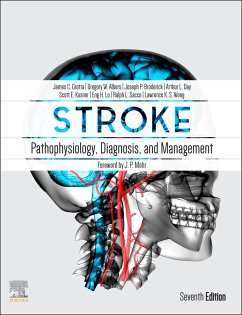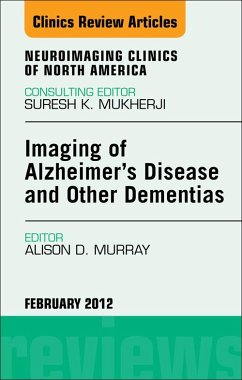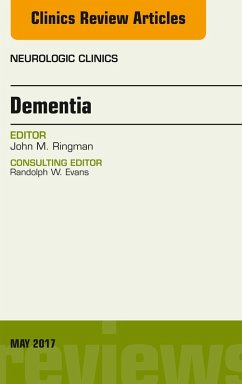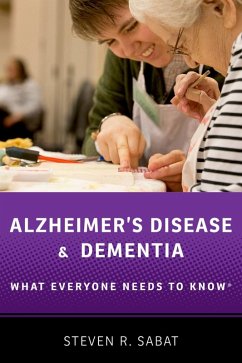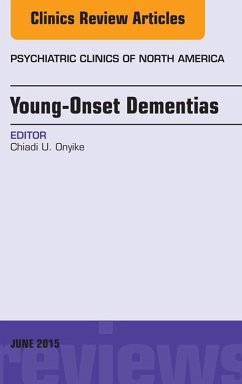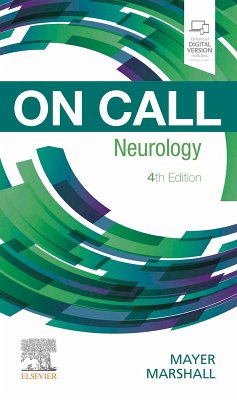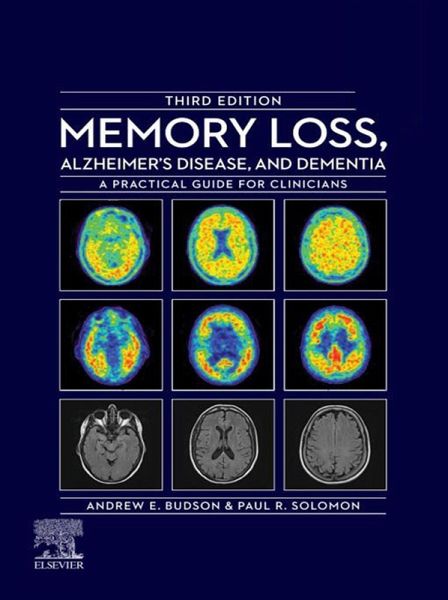
Memory Loss, Alzheimer's Disease, and Dementia - E-Book (eBook, ePUB)
A Practical Guide for Clinicians
Versandkostenfrei!
Sofort per Download lieferbar
54,95 €
inkl. MwSt.
Weitere Ausgaben:

PAYBACK Punkte
27 °P sammeln!
With a focus on the practical, day-to-day tools needed by neurologists, psychiatrists, geriatricians, and others who work with the elderly, Memory Loss, Alzheimer's Disease and Dementia, 3rd Edition, is an indispensable, easy-to-read resource in this growing area. Clinical experts Drs. Andrew Budson and Paul Solomon cover the essentials of physical and cognitive examinations and laboratory and imaging studies for dementia and related illnesses, giving you the guidance you need to make accurate diagnosis and treatment decisions with confidence. - Provides in-depth coverage of clinically useful ...
With a focus on the practical, day-to-day tools needed by neurologists, psychiatrists, geriatricians, and others who work with the elderly, Memory Loss, Alzheimer's Disease and Dementia, 3rd Edition, is an indispensable, easy-to-read resource in this growing area. Clinical experts Drs. Andrew Budson and Paul Solomon cover the essentials of physical and cognitive examinations and laboratory and imaging studies for dementia and related illnesses, giving you the guidance you need to make accurate diagnosis and treatment decisions with confidence. - Provides in-depth coverage of clinically useful diagnostic tests and the latest research findings and treatment approaches. - Incorporates real-world case studies that facilitate the management of both common and uncommon conditions. - Contains new chapters on Alzheimer's look-alikes and posterior cortical atrophy. - Covers key topics such as chronic traumatic encephalopathy, primary age-related tauopathy (PART) and limbic-predominant, age-related TDP-43 encephalopathy (LATE), in addition to new criteria for dementia with Lewy bodies and posterior cortical atrophy. - Includes current National Institute on Aging-Alzheimer's Association and DSM-5 criteria for Alzheimer's disease and mild cognitive impairment. - Demonstrates how to use diagnostic tests such as the amyloid imaging scans florbetapir (Amyvid), flutemetamol (Vizamyl), and florbetaben (Neuraceq), which can display amyloid plaques in the living brains of patients, as well as the new tau scans. - Includes access to more than two dozen videos that illustrate common tests, clinical signs, and diagnostic features. - Enhanced eBook version included with purchase. Your enhanced eBook allows you to access all of the text, figures, and references from the book on a variety of devices.
Dieser Download kann aus rechtlichen Gründen nur mit Rechnungsadresse in A, B, BG, CY, CZ, D, DK, EW, E, FIN, F, GR, HR, H, IRL, I, LT, L, LR, M, NL, PL, P, R, S, SLO, SK ausgeliefert werden.






